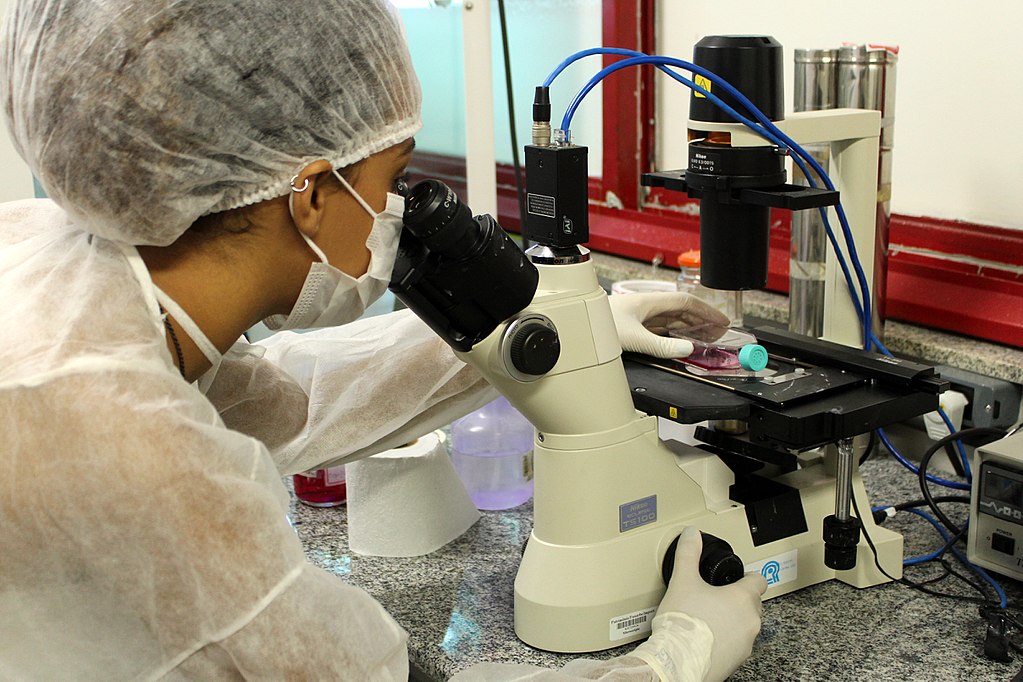The World Health Organization lists cancer as the second most deadly diseases worldwide. In 2018 alone, around 9.6 million people reportedly passed away due to cancer-related causes. One of the possible reasons why the number is this high is the lack of complete cancer cure to this day.
While many scientists and researchers are working hard to develop a cancer cure, others are also working on improving treatment strategies for various types of cancer. Various groups of researchers recently made significant discoveries that could lead to better treatments for pancreatic cancer.
The study was recently published on the journal Nature and was funded by the Pancreatic Cancer Collective under the guidance of Salk Institute's Dr. Tony Hunter. The research (via EurekAlert) focuses on what happens after the pancreatic stellate cells (PSC's) gets in touch with cancer cells in the pancreas.
This process is deemed “exploitable” because it produces “a key protein” called the Leukemia Inhibitory Factor (LIF) that could be targeted for a more efficient treatment strategy for pancreatic cancer. "If we can block LIF pharmacologically or genetically, then we may be able to slow down a tumor's progression and metastasis making it easier to administer chemotherapy and prolong survival," Dr. Hunter explained.
Patients’ responses to existing cancer treatment vary widely. However, pancreatic cancer is reportedly known for not responding well to chemotherapy because of the placement of tumor cells in the protective tissue called stroma. So the outcome of the said research could greatly contribute to the treatment of pancreatic cancer that, according to the American Cancer Society, accounts for 7 percent of cancer-related deaths in the United States.
Meanwhile, earlier this year, a biotech company in Israel claimed they could come up with a complete cure for cancer within a next year. This seems like a piece of great news for humanity. But other experts were more careful in taking the news because the potential cure has not yet been published in medical journals or gone through clinical trial on humans by the time it was announced.



 NASA Partners with Katalyst to Save Swift Observatory with Innovative Docking Mission
NASA Partners with Katalyst to Save Swift Observatory with Innovative Docking Mission  Is space worth the cost? Accounting experts say its value can’t be found in spreadsheets
Is space worth the cost? Accounting experts say its value can’t be found in spreadsheets  Eli Lilly’s Inluriyo Gains FDA Approval for Advanced Breast Cancer Treatment
Eli Lilly’s Inluriyo Gains FDA Approval for Advanced Breast Cancer Treatment  Tabletop particle accelerator could transform medicine and materials science
Tabletop particle accelerator could transform medicine and materials science  Neuralink Plans High-Volume Brain Implant Production and Fully Automated Surgery by 2026
Neuralink Plans High-Volume Brain Implant Production and Fully Automated Surgery by 2026  SpaceX’s Starship Completes 11th Test Flight, Paving Way for Moon and Mars Missions
SpaceX’s Starship Completes 11th Test Flight, Paving Way for Moon and Mars Missions  FDA Pilot Program Eases Rules for Nicotine Pouch Makers
FDA Pilot Program Eases Rules for Nicotine Pouch Makers  Trump Administration to Launch Autism Initiatives Targeting Acetaminophen Use and New Treatment Options
Trump Administration to Launch Autism Initiatives Targeting Acetaminophen Use and New Treatment Options  Cogent Biosciences Soars 120% on Breakthrough Phase 3 Results for Bezuclastinib in GIST Treatment
Cogent Biosciences Soars 120% on Breakthrough Phase 3 Results for Bezuclastinib in GIST Treatment  Lost in space: MethaneSat failed just as NZ was to take over mission control – here’s what we need to know now
Lost in space: MethaneSat failed just as NZ was to take over mission control – here’s what we need to know now  Blue Origin’s New Glenn Achieves Breakthrough Success With First NASA Mission
Blue Origin’s New Glenn Achieves Breakthrough Success With First NASA Mission 




























